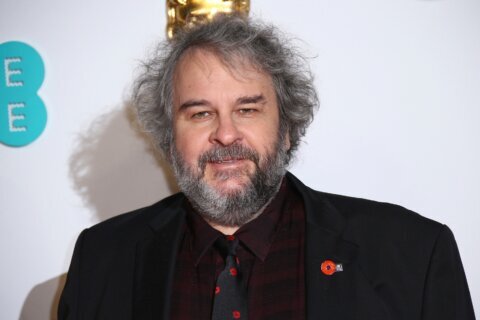Few screenwriters have mastered the genre of legal drama like Aaron Sorkin, adapting his own stage play into Rob Reiner’s classic “A Few Good Men” (1992) and penning Facebook litigation for David Fincher’s masterpiece “The Social Network” (2010).
Likewise, few screenwriters have mastered political dramas like Sorkin, delivering NBC’s “The West Wing” (1999-2006) and HBO’s “The Newsroom” (2012-2014).
Now, the two collide for the Netflix original “The Trial of the Chicago 7,” as Sorkin also takes over the director’s chair for a project originally intended for Steven Spielberg.
The story follows the true story of seven men arrested during an uprising outside the 1968 Democratic National Convention in Chicago. After the resignation of LBJ and the assassinations of Malcolm X, MLK and RFK, the young men believe Democratic nominee Hubert Humphrey isn’t tough enough as they protest the Vietnam War.
To steal a phrase in the news, Sorkin “packs the court” with Hollywood star power.
Frank Langella (“Frost/Nixon”) is the iron-fist judge, Joseph Gordon-Levitt (“Inception”) is the lead prosecutor, Mark Rylance (“Bridge of Spies”) is the gutsy defense attorney, Yahya Abdul-Mateen II (“Watchmen”) is the co-founder of the Black Panther Party and Michael Keaton (“Spotlight”) is the former attorney general and potential star witness.
As for the titular defendants, you’ll recognize Jeremy Strong (“Succession”) as Jerry Rubin, John Carroll Lynch (“Fargo”) as David Dellinger, Alex Sharp (“The Curious Incident of the Dog in the Night-Time”) as Rennie Davis, Daniel Flaherty (“Skins”) as John Froines and Noah Robbins (“Masters of Sex”) as Lee Weiner.
Leading the bunch are Eddie Redmayne and Sacha Baron Cohen, who steal the show with a pair of powerhouse performances that rank among the best of the year.
Redmayne sculpts his best character since his Oscar as Stephen Hawking in “The Theory of Everything” (2014), before the flop “Jupiter Ascending” (2015), overrated “The Danish Girl” (2015) and mediocre “Fantastic Beasts” (2016). As Tom Hayden, Redmayne portrays an academic hoping for lasting change over flashy headlines.
This puts him at odds with activist Abbie Hoffman, who dropped f-bombs in an American-flag shirt in “Forrest Gump” (1994). This time, Cohen gives him a more human side, exposing the method behind the madness. He also gets to spit Sorkin’s best zingers, earning Supporting Actor Oscar buzz weeks before his “Borat” sequel.
Their clash of ideals explodes as Redmayne confronts Cohen:
“My problem is that for the next 50 years when people think of progressive politics, they’re gonna think of you and your idiot followers passing out daisies to soldiers and trying to levitate the Pentagon. They’re not gonna think of equality or justice, they’re not gonna think of education or poverty or progress, they’re gonna think of a bunch of stoned, lost, disrespectful, foul-mouthed, lawless losers, and so we’ll lose elections.”
In that exact moment, we remember why Sorkin is Sorkin. Yes, his talky scripts can be verbose, but he possess a unique ability to crystalize what ails our society, as seen in Jeff Daniels’ viral speech on declining American exceptionalism in “The Newsroom.”
Sure, his script isn’t for everyone, taking structural chances like in “Steve Jobs” (2015). After a rousing opening montage of protest planning, Sorkin skips the actual incident to dive right into the court case. You could argue the pacing starts slow, but Sorkin hits his stride around the midpoint, intercutting flashbacks until the climatic clash.
In the end, we’re left with a finale that remembers its thematic core: the names of the fallen. We’re asked to question what it means to be “a few good men.” Are good men those who blindly support their government? Or those on a quest to improve it?
After a year of political protests in 2020 America, we appreciate the figurative stand that Cohen takes when he takes the literal stand. “Do you have contempt for your government?” Gordon-Levitt asks. Cohen replies, “I think the institutions of our democracy are wonderful things that are right now populated by some terrible people.”









